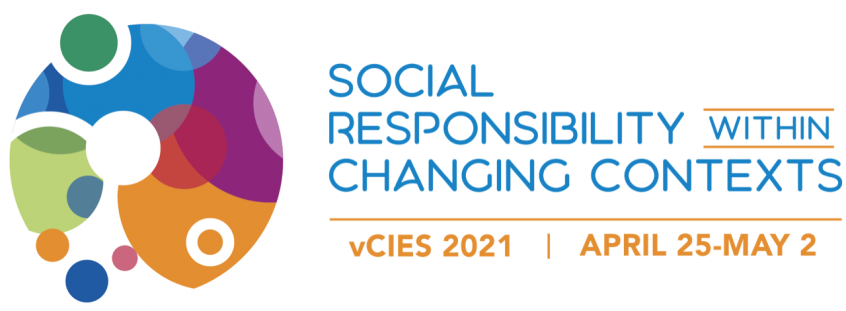IEA had an active presence at vCIES 2021 hosting two workshops on Sunday 25th April and a special presentation on Thursday 29th April 2021.
IEA colleagues and partners contributed to the all-virtual 65th annual conference of the Comparative and International Education Society (CIES). Under that year’s theme of ‘Social Responsibility within Changing Contexts’, this included pre-conference workshop, talks at highlighted sessions and panels, or the chairing and discussion of symposia - primarily related to TIMSS and ICCS, yet also covering IEA’s third party work in OECD’s TALIS and UNICEF’s LSCE projects.
Workshop 1 was a joint IEA/AIR workshop on ‘Comparative and International Education Research Made Easy Using Free Online Data Platforms and Tools’ on Sunday 25 April 2021 from 07:00 pm - 10:00 pm (CEST).
Workshop description
Several data platforms and tools are free and publicly available on the web for supporting comparative and international education research. However, they vary partly considerably in terms of content, functionality, data visualization capabilities, and availability of country data. Sometimes it may get confusing what data platforms are in place and which ones to use to answer specific research questions. At this workshop, IEA and AIR presenters aimed to teach participants and provide hands-on examples how and in which context to use these data platforms and tools effectively. The session was focused on three of them, namely the ILSA Gateway, the International Data Explorer (IDE), and the Country Profiles and Comparisons database. All three platforms have been developed with funding support from the National Center for Education Statistics (NCES), U.S. Department of Education.
Workshop requirements: some knowledge about quantitative research methods was helpful but not necessary. For content - related questions contact ilsa-gateway@iea-hamburg.de
Workshop 2 was on 'How well are students prepared for life in the digital age? Analyzing international data from 13 countries (including the U.S.) from IEA's ICILS 2018 study', and held from 07:00 - 10:00 pm (CEST).
Workshop description
The workshop explored how secondary analysis of ICILS 2018 data could provide further insights for policy and practice. It included an overview of ICILS, covering its background, conceptual framework and design. It presented some key findings from the 2018 data collection, as well as examples of secondary research conducted with ICILS 2013 data. Group work and presentations by the participants complemented lectures by the workshop instructors.
Workshop requirements: no prior knowledge about large-scale international studies is required. Basic knowledge about statistical analysis was not required but is an advantage. For content - related questions contact randa@iea-hamburg.de
Paper Presentation
On Thursday 29 April from 5:00 - 6:30 pm, CEST, Falk Brese and Nadine Twele (former IEA colleague) presented a paper on 'Teaching and learning during the “new normal” in education. Baseline indicators for remote learning from TIMSS 2019'.
Panel Session
On Thursday 29 April at 07:00 PM (CEST), IEA's Executive Director, Dirk Hastedt, participated as a Symposia Discussant at a vCIES session entitled 'Diagnostic Studies Using TIMSS and TIMSS Advanced Assessment Data'. The symposium focused on applying diagnostic methods to better understand students’ strengths and weaknesses in science and mathematics and further explore specific types of misconceptions and errors related to two core concepts – gravity in physics and linear equations (or relationships) in mathematics.
Highlighted Session
On Wednesday 28 April at 12:15pm (CEST) there was a highlighted session entitled 'Reflections on IEA Civic Education Studies’ Multi-faceted Contributions to the Research, Theory and Practice of Democratic Education across Countries'. The session built on the release of an upcoming book containing chapters in Part one that consider the influences of the IEA civic education studies on practice, policy and research in fourteen countries. The second part of the book contains nine chapters presenting overviews by comparative educators and social scientists across the European, Asian and Latin American regions as well as broader reflections.
Virtual

